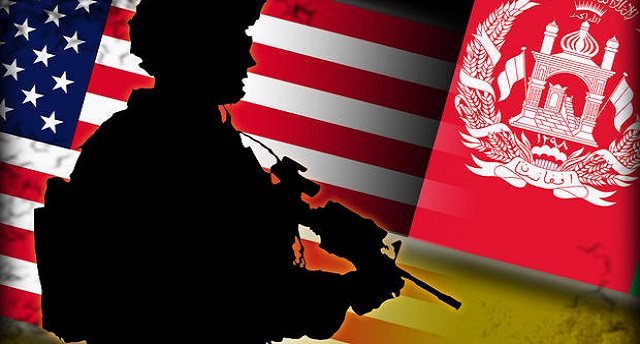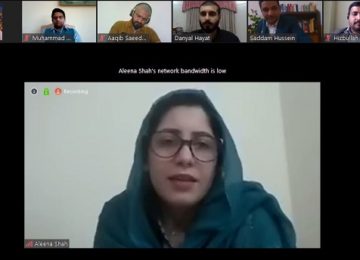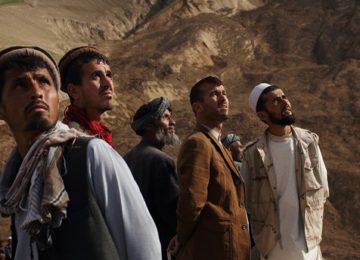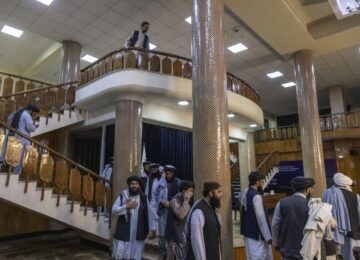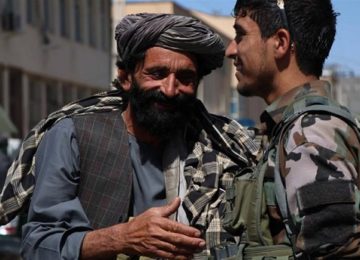December 18, 2017
It has been more than six months since President Donald Trump announced his new Afghan strategy. This was done on August 21, 2017 from a military base near Washington. What have the Americans achieved since they embarked on a new course to deal with this 16-year-old problem? They went into the country in October 2001 and it is unlikely they will be in a position to leave anytime soon.
There were four distinct parts of the new approach. First, the American commanders stationed in Afghanistan were to be given more authority to act on their own without consulting with Washington. During the years Barack Obama was in the White House, American commanders in Afghanistan were barred from carrying out offensive air strikes against the Taliban unless they were permitted to do so by Washington. Second, pressure was to be put on Pakistan to stop all those who were using the country’s territory to launch attacks on Afghanistan. Third, the Afghans were to speed up the development of political institutions in their country. And, fourth, at some time in the future, the Taliban were to be invited to the negotiating table to work out an arrangement so that they could become a part of the governing system. Today, I will discuss the military and political aspects of the new deal.
The American military commanders were allowed to take the gloves off. What they had achieved by adopting the more aggressive approach was described by journalist Eric Schmitt who writes for The Washington Post. He rode in the cockpit of a B-52 bomber that took off from the American base in Qatar and flew over Pakistan into eastern Afghanistan. Once there “with jaw dropping view of 16,000-foot snow-peaks the bomber circled ominously above a militant-infested swath of Afghan territory near the rugged border with Pakistan, hunting for Taliban or Islamic State fighters who could threaten friendly troops nearby,” wrote Schmitt. No munitions were dropped on this particular mission.
American troops have already dropped 3,900 bombs and fired hundreds of missiles in Afghanistan in 2017, three times as many as last year. “These new authorities give me the ability to go after the enemy in ways that I couldn’t before,” Gen John W Nicholson Jr, the top American commander in Afghanistan, said last month after beginning the new operation, code-named Jagged Knife. “We are hitting the Taliban where it hurts, which is their finances,” the general explained.
The American commanders have the numbers to suggest that their strategy is working. In the month of November, air strikes have destroyed 25 drug labs in southern Afghanistan, wiping out an estimated $16 million in revenues that would have gone into the Taliban coffers. But the commanders agree that the economic war they are waging against the Taliban could take a long time since the insurgents have developed deep economic roots. The group operates 400 to 500 drug laboratories across the country that generates $200 million from the drug trade. Drugs account for 60 per cent of the Taliban’s income. According to Gen Nicholson, the Taliban have only three choices: reconcile, face irrelevance or die. But there is a fourth he did not mention: outlast the Americans and prove to the people who support them that they can provide better governance than those ruling from Kabul.
Would the strategy to use airpower to destroy the Afghan drug industry work? This industry has been key in supporting the Taliban effort in the country. “It’s useful to impact the Taliban financially, but it may just drive production into neighbouring Pakistan or Iran,” says David W Barno, a retired general who led the war effort in Afghanistan for almost two years. He also worries about civilian deaths when such large ammunition is being dropped from the high-flying bombers, such as the B-52s. Barno and other critics say that the sharp increase in air strikes will backfire, inevitably causing more civilian casualties and the accompanying blowback, despite the American military’s best efforts to mitigate that risk.
If the military campaign at best has been a half-success, what about the effort to create inclusive political institutions in the country? It appears to those who are closely watching the situation that President Ashraf Ghani is not succeeding. He was supposed to hold elections to bring in a new parliament. That was one part of the agreement brokered by Secretary of State John Kerry that resulted in the sharing of power between Ghani and Abdullah Abdullah, his rival. The assumption was that following the National Assembly elections, Abdullah will move from his position of chief executive and become prime minister. The chief executive position was not defined; it was a holding operation until the brokered system was normalised. But Ghani seems in no hurry to call the new parliament into session and regularise the position Abdullah occupies in the power structure.
The Afghan president has also antagonised a number of powerful warlords. He prevented one of them from the north of the country to attend a meeting called by some of his southern colleagues. The president was afraid that the local leaders would come together and ask for his resignation. Even if the Americans succeed in weakening the Taliban by attacking their economic base, peace will not return to the country until the time a system develops that would allow the powerful local chieftains to work together.
These developments signal one important thing where Pakistan is concerned. The Trump administration has attempted to pass on to Islamabad its failure in Afghanistan. It is in fact Afghanistan that is failing on its own.
This article was originally published in The Express Tribune on December 18, 2017. Original link.
Disclaimer: Views expressed on this blog are not necessarily endorsed or supported by the Center for Research and Security Studies, Islamabad.



